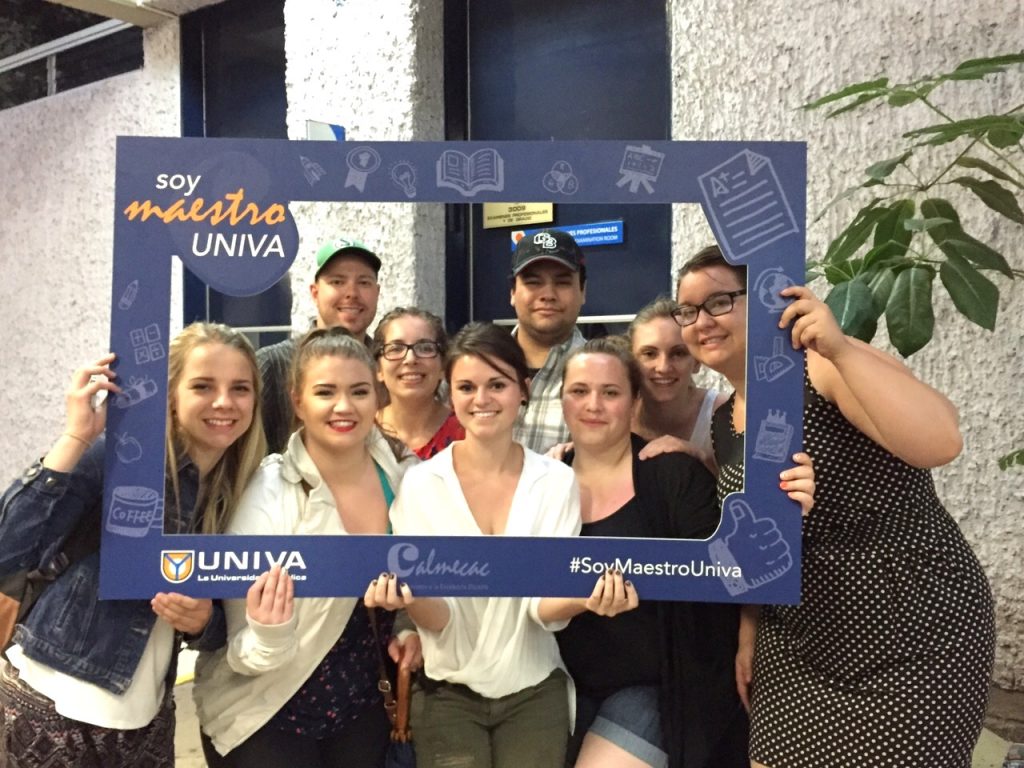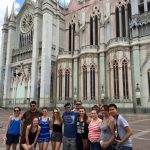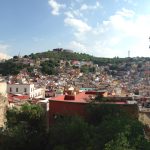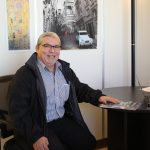
From May 8 – 28, a group of students took part in a 3-week study tour to Mexico (EFDN 498) under the direction of Martin Lopez, Academic Program Development Consultant, Office of Resource Planning and a sessional in the Faculty of Education. This 3-credit course was held in Guadalajara, Mexico at the University of the Valley of Atemajac (UNIVA). Through this course, students explored the history of education in Mexico, and compared and contrasted features of Mexican and Canadian education systems and practices, while experiencing Mexican culture and historic sites.
Students spent the mornings teaching in either a private high school, located inside the UNIVA campus secured gates, or in the public middle school located across the street. “This gave them opportunity to observe and work with students from two settings,” says Lopez. For 3rd-year students Natasha Knobel and Mike Zylak, the time spent in classrooms was the highlight of the tour. “We were all beaming about how great a time we had with kids…Everyone was talking about what they did and what they talked about with the students,” says Zylak. Knobel adds, “We were so trusted! When I was speaking, they were listening to every word, every syllable…It was such a privilege for them to hear English spoken. They kept asking, ‘How do I say this?’” Zylak and Knobel were impressed by how highly regarded teachers were by the students, who were affectionate, engaged, and enthusiastic. Zylak notes, “Even though we were with the students such a short time, they were in tears when we left. They presented us with gifts and a formal dance.” Knobel adds, “This was more so in the middle school than the high school. They felt so honoured and special that we came.”
In the afternoons, the students attended class at UNIVA. They covered three modules with three different instructors from UNIVA: the history of education in Mexico, contemporary Mexican education, and the history of Mexico. Fourth-year student Brooklyn Orban says, “It was amazing to be able to compare our educational system to that of Guadalajara, and to see the vast differences in school structure and classroom instruction. It was important to realize, however, that the essence of education was very similar to that here in Canada.” Knobel says, “We had the opportunity to talk about our Aboriginal history. History happened here, too. I found out the same thing happened to Aboriginal peoples in Mexico.” Zylak was impressed that the Mexican professors “asked us what ideas we had to make Mexican education better.”
On weekends, students travelled to a variety of locations within the city and to five other cities, referred to as the Mexican Independence Route. The course module about the history of Mexico helped them to understand the significance of the sites they were viewing. Knobel says, “Learning about Mexican history in class helped me understand the sites.” Orban says, “The copious cultural activities and trips we participated in helped me to gain an understanding of the culture but also be able to empathize with my students back in Canada.”
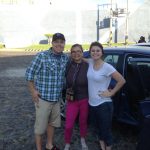
The rest of the time was spent with students’ host families and in the communities where they were living. Living with host families provided a rich cultural immersion experience. For Knobel, living with a host family “really made it a cultural experience…I learned quite a bit of Spanish.” She adds, “I tell people I lived in Mexico; I wasn’t a tourist in a resort; I really experienced living in Mexico.” Zylak enjoyed the warmth of his host Madre, whose warm hugs from the very first meeting helped him to feel at home. Their host mom wanted to learn English and this gave them focussed time together. “At supper, we would discuss our day with our host families. Our ‘Madre’ would teach us Spanish and we would teach her English,” says Knobel. The design of the trip allowed the students to be immersed. Orban says, for her “the highlight of the trip to Mexico was being immersed in their culture.” Lopez says, “I was pleased with my students; they would order and eat as if they were Mexicans…I was surprised by how willing they were to try new things.”
Students were able to offset the costs of this trip through the U of R travel fund, which offers $1000 grants for international study to students with 30 credit hours and at least a 70% GPA. Some students were able to obtain other funding, such as funds through the Education Students’ Society. Knobel says, “With the funding we were able to secure, the course didn’t end up costing much more than a 3-credit course on campus would.”
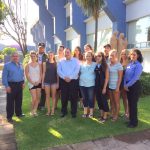
The study tour gave students broader perspectives, which according to Lopez is one of the course outcomes: “These kids are future educators; if they see people from other countries with new eyes, they will be better teachers. They will learn how to better interact with students.” Orban, who is currently interning at Bert Fox Community High School, says, “As a current intern, I have been able to use this knowledge to create culturally diverse lessons and units in various subjects. As well, I feel better prepared to analyze cultural perspectives and use my experience as a direct comparison to our colonial past in Canada, as the two histories have almost paralleled.” Even Lopez, who grew up in Mexico, developed a new perspective, “I got to see my own culture with a different set of eyes; I discovered new things, new colours, and got to see it all through the eyes of my Canadian students.” Knobel saw a bigger world than the one she had grown up in, and gained new understanding of her own interests: “I learned that I really like languages. I now have the ambition to travel and to teach English as a second language. I got to see a different culture, and see that the world is bigger than Regina; there are different attitudes towards everything, different outlooks.” Because of his experience in Mexico, Zylak, who was impressed by the personal warmth between teachers and students in Mexico, plans to develop relationships that are more personal with students. “We have so many policies here—don’t touch students, or be careful about what you say to students—I want to use the students’ first names, to be personal with kids. If students know you as a person, they can trust you more, and you can get to know more about what they understand and what they don’t understand.”
How did EFDN 498 develop?
In 2013, Lopez had just begun his Masters’ in Human Resources through the Faculty of Education. Lopez also took on a TA role, working with Dr. Douglas Brown, Director of the Centre for International Education and Training (CIET), and Associate Professor with the Faculty of Education. Lopez says, “In our first meeting, Dr. Brown said that he had been thinking about a study tour to Mexico with education students, and was there anything I could contribute to this?” Lopez immediately contacted the university from which he had graduated: UNIVA. However, it had been 28 years since he had graduated from this university, so he had to develop new connections there. Lopez realized that this could be his master’s project, so after meeting with the appropriate people, including the CIET board, this course development became his graduate project. “It took over a year to complete the project, and there was significant planning. There was an MOU signed by both universities, a necessary part of the development. It was unusual in that the project would eventually result in a course that would happen.”
Now that Lopez has completed one study tour, he is revising some aspects for the next study tour. For instance, he plans to offer basic Spanish lessons to give students more ability to communicate with their host families and in their communities.
Plans are under way for a future study tour, provided it is supported by the appropriate decision makers. Dr. Douglas Brown, Director of CIET, who initially asked Lopez to develop the Mexican study tour and who has a vision for future international study tours, says “EFDN 498 advances the Faculty of Education’s mandate towards internationalization in responding to increasing levels of complexity in the educational field…EFDN 498 is a cooperative project between CIET and the Dean’s Office; the intension is to provide meaningful academic experiences for undergraduate education students. The Mexico Study Tour is just one example. Other locations have been considered for future tours. For example, Northeast Normal University (Changchun, China) has expressed interest in hosting such a tour. This venue is currently being reviewed for May, 2016.”
Watch the video created by UNIVA
Photos courtesy of UNIVA
